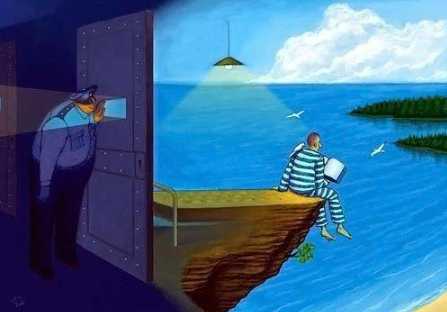Stories that build bridges: Fostering Empathy and Social Reintegration for Inmates"
- Lotta Böhm

- 14 janv.
- 3 min de lecture
Dernière mise à jour : 26 mars
Every person carries their own baggage in their life. A life story that is shaped differently and characterized by situations and events. I experience time and again how easy it is for people to form an opinion about the lives of others and to pigeonhole them. Based on the information they have about a person. There is a saying that goes; “Don't judge me until you have experienced what I have experienced. Until you are able to see through my eyes and have shed as many tears as I have. Until you have walked a day in my shoes. Until then, you have no idea.”

Even though it is often so easy for us to allow ourselves to pass judgement on (the life of) a person, I think it is important to keep these words in mind more often. Because as already mentioned, every person has a story that we forget or don't even know when we make judgements about them. This applies to all people who live in this world. In the case of an inmate, for example, every prison employee knows the offence that is recorded in the file. But not the circumstances or situations that led to it. And yes, there are also offences that are difficult to comprehend and make it difficult for people to empathise with the offender.
The Stories4Wings project aims to make a difference in this respect, to create a change of perspective that can bear fruit for both sides, the inmates and society outside prison. An opportunity to break down prejudices and change society's perspective. The project aims to improve the education of adults in prison through the use of stories. Values such as citizenship, democracy, integration, freedom and society are important here. By incorporating these values, the social reintegration of prison inmates is to be facilitated. This should be achieved by helping them to overcome the social and cultural barriers they face. An important point here is to prepare inmates for an active and productive life outside prison.
Stories generally have a lot of potential. They have a transformative power, can motivate people, teach them and change attitudes and behaviour. With regard to the project's target group, the prison inmates, stories enable them to reflect on their own experiences and emotions. It also promotes empathy and understanding and helps them to develop key skills for social reintegration. In prison, inmates have limited access to educational opportunities. Stories can bring about individual change in a person's life and, more broadly, initiate social change. They can also encourage inmates to reflect on themselves and their past. And also, to think about their life that will follow after prison. It can also promote dialogue between inmates.
What I would see as beneficial in addition to this particular project is the sharing of inmates' stories with society. Sharing the personal life stories, the view and perhaps also remorse of the offence, the view of the inmates behind the prison walls.
I am sure that these stories would reach many people and also build bridges between the people in prison and the people outside. ‘Stories through the walls’ together with “Stories for wings”. For the strengthening and inclusion of values for the social reintegration of prison inmates, the reduction of prejudices and the preparation of inmates for an active and productive life outside prison.






Commentaires